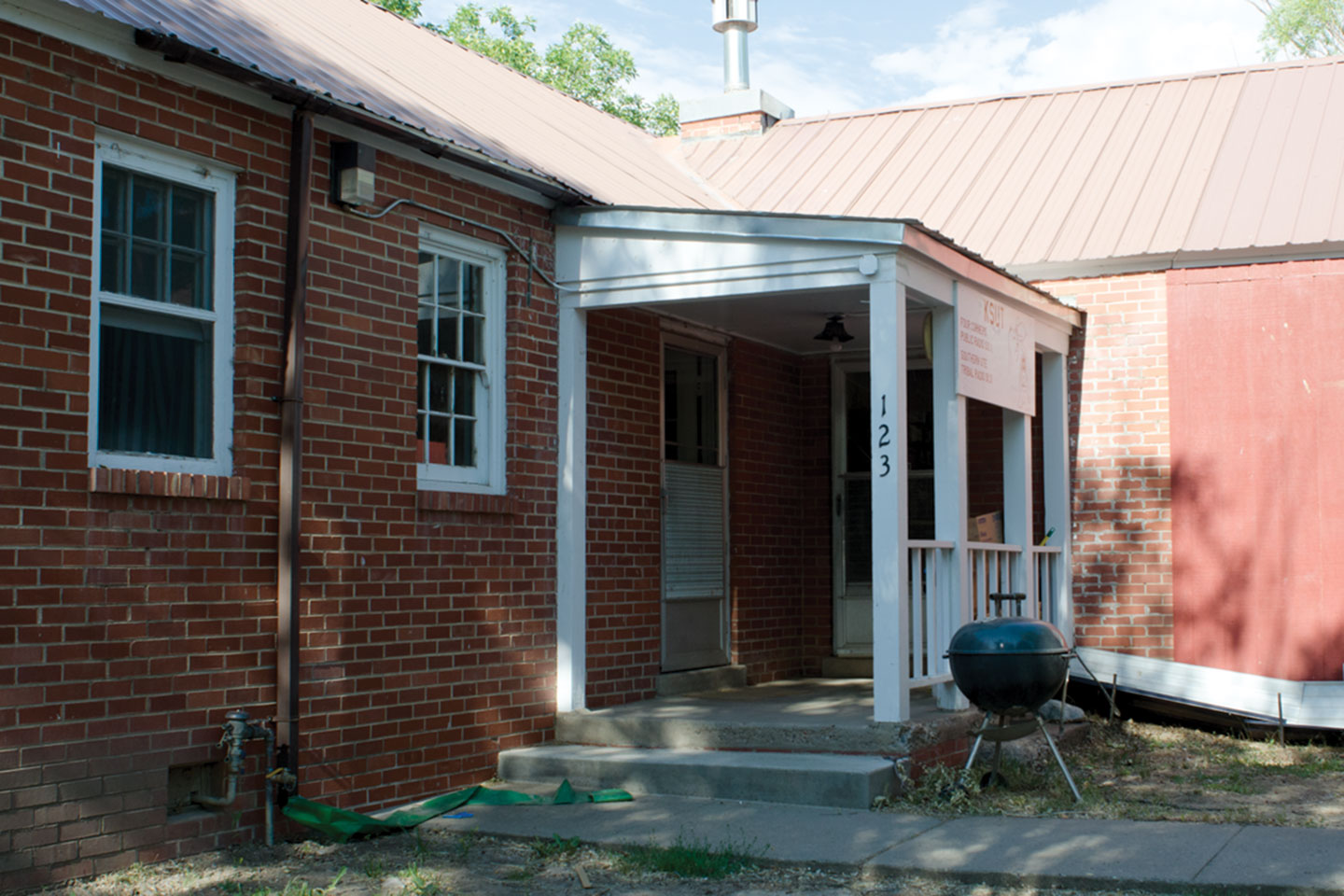KSUT was first known as a tribal radio station. But as many may not be aware, KSUT is now an independently operated radio station on the Southern Ute Indian Reservation. Gradually shifting from a tribally funded station to an independent non-profit through the early 2000’s.
“Over the last two decades KSUT has become financially independent … and to which today and for the last decade we have been operating independent of tribal financial support, other then in-kind,” KSUT Development Director, Bruce Campbell said. “The Tribe has, and still does provide generous in-kind support and that makes up about 10 percent of the budget today.”
According to Campbell KSUT has an annual budget of about one million dollars coming from a variety of sources including: the Corporation of Public Broadcasting, four corners memberships, underwriting, grants and the Tribes in-kind services.
The in-kind services provided by the Tribe include; accounting services, access to the employee benefit plan, and use of the KSUT building.
“With the growth and popularity of the Four Corners signal, we became independent of tribal funding because of the support of the greater four corners community, from memberships and underwriting,” he said. “ It was a gradual independence.”
Though KSUT is an independent non-profit it still remains a tribal organization through bylaws that mandate Native Americans hold the majority of the seats on the KSUT Board of Directors, he said.
In 2000, KSUT split into the two signals, Four Corners Public Radio and KSUT Tribal Radio. Broadcasting native and none native music on one signal was difficult and confusing to some listeners, he said.
“By only broadcasting on one signal; we weren’t serving either group of listeners the best we could,” Campbell said. “By separating into two signals KSUT has improved it’s service to the community”
In April 2012, KSUT Tribal Radio was able to expand its signal and began broadcasting tribal radio to northern New Mexico.
“The expansion has allowed tribal radio to reach more listeners and provide information to tribal members that couldn’t listen to us before,” Tribal Radio Director, Sheila Nanaeto said. “ We also expanded our programing … we include Four Corners programming and we also share our programming with Four Corners.”
The sharing of programming is part of KSUT’s mission of promoting multi-cultural awareness, Campbell said.
“[KSUT] keeps its mission close to heart when making decisions and we really strive to integrate and keep our mission of culture diversity alive,” Nanaeto said.
The expansion into northern New Mexico meant that KSUT had to begin thinking about more than just Southern Ute tribal members, as the expansion brought many different Native listeners into play.
“When we sat down when the expansion happened we talked about how we were going to promote the station … was it going to be a Native radio station, or a Southern Ute radio station for natives to listen to.” Naneto said. “We decided to stick to our identity, we are from here [Southern Ute Reservation], we’re Southern Ute, and we are very proud that our morning DJ’s are all tribal members.”
KSUT Tribal Radio does broadcast Indian Country news and news from tribes in the area, but when someone hears KSUT tribal radio they know it’s a Southern Ute radio station, Naneto said.
Also helping grow the popularity of KSUT in the 2000’s was the expansion of technology.
In 2007, KSUT converted from an analog signal to digital to improve and strengthen KSUT’s signal. KSUT was able to convert to digital thanks to federal funding distributed to public radio stations for the conversion.
In 2001, KSUT took a big leap and began broadcasting both signals worldwide via Internet.
“Streaming online has been very successful for both signals,” Naneto said.
After beginning streaming KSUT started hearing from listeners all across the globe.
“Within months of streaming online we heard word from a listener from the South Pole,” Campbell said. “And since then we have heard from listeners in Japan, Germany, Australia and South America … and everywhere else in-between.”
More recently KSUT dived into the social media world creating Facebook and Twitter accounts to increase communication with all KSUT listeners.

